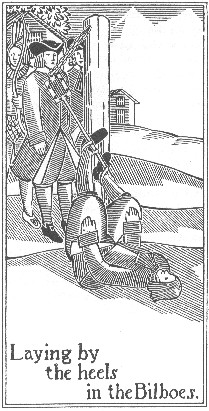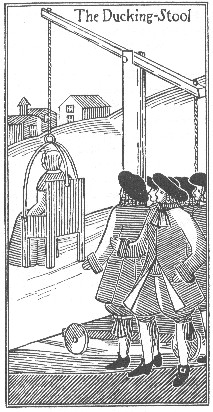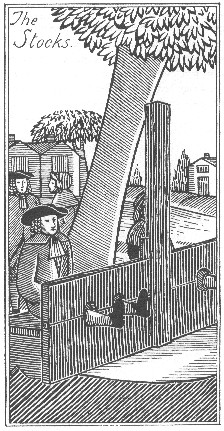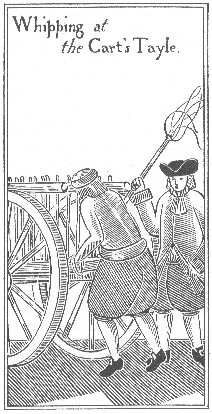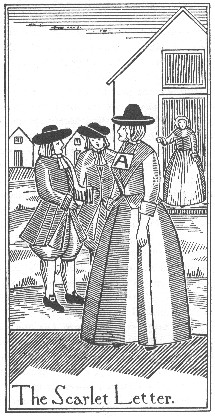Philosophy of Law Office: Hellems 182
Spring 2002 Phone: 492-6964
Hellems 229 Hours: TR 11:00-12:15
TR 12:30-1:45 david.boonin@colorado.edu

course description: This advanced undergraduate/graduate-level course offers a detailed, critical examination of one of the central issues in the philosophy of law: the problem of punishment. Punishment involves treating people in ways that it is typically wrong to treat people (e.g., taking away their money, locking them up in cages, killing them). The problem of punishment arises from the fact that although virtually everyone agrees that the practice of punishment is morally permissible, it is extremely difficult to say precisely why the fact that criminals have broken the law renders it permissible to treat them in ways that it would otherwise be wrong to treat them. The course will begin by developing a detailed account of the nature of punishment and of the problem of justifying it. We will then devote the majority of the semester to a critical examination of various solutions to the problem that have been proposed in the philosophical literature on punishment, beginning with the two most prominent sorts of solutions (consequentialist and retributivist) and then moving on to a number of less orthodox positions (including self-defense, expressivist, educative, and consent-based models). The course will conclude with a detailed consideration of the alternative view that punishment should simply be abolished and replaced by a system of victim restitution, and, time permitting, with discussion of one or two further topics related to punishment (such as capital punishment, corporal punishment, punishment of children, etc.). Class format will involve a mixture of lecture and discussion and how much time we spend on any one unit will depend largely on how much discussion that unit generates during class meetings.
required readings: All required readings are noted in boldface below and are available as electronic texts linked to this syllabus. Students who wish to access the readings electronically from off-campus computers should click here , for specific instructions about how to do so. Students are expected to come to class having done the required readings.
course requirements: Final grades will be based on a combination of written work and class participation. Written work will consist in a substantial term paper (approx. 20-22 pp.) due on Friday, April 25. Class participation is construed broadly to include conversations with me during office hours and correspondence via e-mail, as well as contributions to class discussion and to further development of this website (e.g., by providing further relevant links to be listed below, additional optional readings to be posted, news updates, etc.). With respect both to written work and to class participation, students will be evaluated on their ability to explain and critically assess the arguments covered in the course, and not on whether they agree or disagree with these arguments.
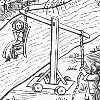





class meetings (dates are extremely approximate):
1. Introduction and Overview (Jan. 15)
2. The Problem of Punishment (Jan 17-24)2.1 what is punishment? (Jan. 17, 22)
Donald Loftsgordon, "Present-Day British Philosophers on Punishment," pp. 342-3
Sidney Gendin, "The Meaning of "Punishment"
NEW! Handout: Generating a Definition of Punishment
NEW! Handout: Accepting a Definition of Punishment
2.2 what is the problem of punishment? (Jan. 24)
Warren Quinn, "The Right to Threaten and the Right to Punish," pp. 327-9
NEW! Handout: Is the Problem of Punishment a Pseudo-Problem?
3. The Consequentialist Solution (Jan. 29-Feb. 14)
3.1 the act-utilitarian version
(Jan. 29, 31)
J. J. C. Smart, "Extreme and Restricted Utilitarianism"
Donald C. Emmons, "Act vs. Rule-Utilitarianism"
Jeremy Bentham, An Introduction to the Principles of Morals and
Legislation
(Chapters I.i-viii, III.i-iv, VII.i-iii, XIII, XIV)
3.2 the rule-utilitarian version
(Feb. 5, 7)
John Rawls, "Two Concepts of Rules"
NEW! Handout: Rawls's Rule-Utilitarian
Response to the Punishing the Innocent Objection
3.3 other versions of utilitarianism (Feb.
12)
3.4 non-utilitarian versions of consequentialism
(Feb. 14)
Lisa H. Perkins, "Suggestion for a Justification of Punishment"
4. The Retributivist Solution (Feb. 19-Mar. 14)
4.1 desert-based retribuitivism (Feb.
19, 21)
C. W. K. Mundle, "Punishment and Desert", pp. 221-28
Michael S. Moore, "The Moral Worth of Retributivism," pp. 632-35 (handout).
4.2 forfeiture-based retributivism (Feb. 26,
28)
Alan H. Goldman, "The Paradox of Punishment", pp. 42-7
NEW!
Handout: The Rights-Duties Argument for Forfeiture-Based Retributivism
4.3 fairness-based retributivism (Mar.5, 7)
Richard Dagger, "Playing Fair with Punishment"
4.4 revenge-based retributivism (Mar. 12, 14)
Andrew Oldenquist, "An Explanation of Retribution", pp. 473-5
"250 Ask to Watch McVeigh Die" [news story]
5. Other Solutions (Mar. 19-Apr. 11)
5.1 the self-defense solution (Mar. 19, 21)
Warren Quinn, "The Right to Threaten and the Right to Punish"
Daniel M. Farrell, "The Justification of Deterrent Violence"
Daniel M. Farrell, "The Justification of General Deterrence"
5.2 the consent solution (Apr. 2, 4)
C. S. Nino, "A Consensual Theory of Punishment"
Larry Alexander, "Consent, Punishment, and Proportionality"
C. S. Nino, "Does Consent Override Proportionality?"
5.3 the reprobative solution (Apr. 9, 11)
Andrew Oldenquist, "An Explanation of Retribution", pp. 464-72
Robert Gahringer, "Punishment as Language"
Jean Hampton, "The Moral Education Theory of Punishment"
Benjamin Weiser, "A Sentence of No TV; Unusual, Yes, but Cruel?"
6. The Restitution Alternative (Apr. 16, 18, 23, 25)
Randy E. Barnett, "Restitution: A New Paradigm of Criminal Justice"
Franklin G. Miller, "Restitution and Punishment: A Reply to Barnett"
Roger Pilon, "Criminal Remedies: Restitution, Punishment, or Both?"
7. To Be Announced (Apr. 30, May 2)
Possible topics include: capital punishment, corporal punishment, punishing
children, etc.
Here are some current articles on issues related to punishment:
"Some States Track Parolees by Satellite"
"New Jersey to Rule on Keeping Sex Offenders Locked Up After Prison Release"

Here are some internet resources related to the problem of punishment:
U. S. Department of Justice: Federal Bureau of Prisons Homepage
U. S. Department of Justice: Office of Justice Programs
National Center for Victims of Crime
Center for Restorative Justice and Peacemaking
Prisoner Issues and Prisoner Solidarity Links
Ethics Updates: Punishment and the Death Penalty
Prison Activist Resource Center
